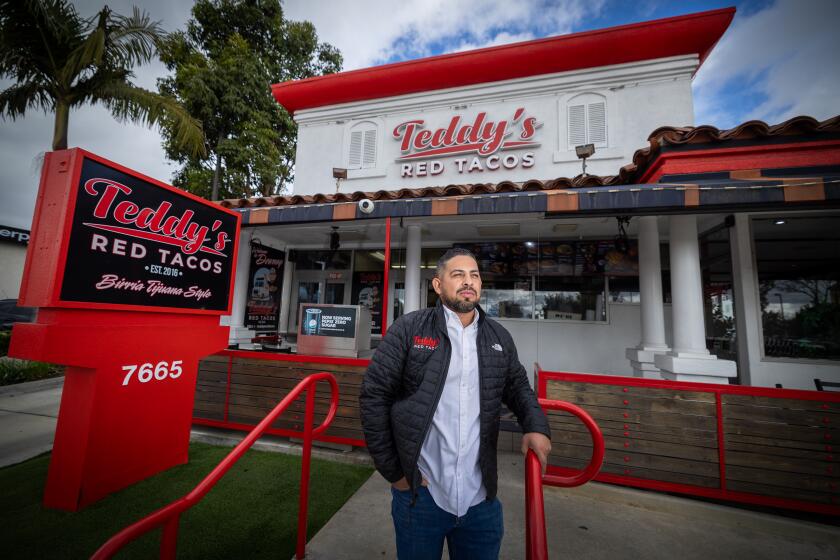Helping Other Immigrants Find the Way
- Share via
His office, in a drab stucco building in an industrial area of Santa Ana, is cramped and windowless.
But business is booming at the Neighborhood Services Center, a mecca for immigrants from all parts of the world seeking help and advice of various sorts. The center, said David Kann, himself a Cambodian immigrant, provides some direction for people trying to find their way.
“If this center were not here, people would be trapped,” said Kann, a social worker. “People come here because they trust me, they know I can help. I help them find jobs, with schools, with courts, with things like the DMV.”
Kann, 30, learned all about being trapped back in Cambodia. When his father was killed by the Khmer Rouge in 1975, Kann, then only 14, was forced into hiding.
“Because my father was a soldier, they would have killed me too,” Kann said. “I changed my name and just disappeared from my village. I told everyone my father was a farmer so I could stay alive.”
After four years of hiding and living with an adopted identity, Kann and his mother, two brothers and a sister escaped Cambodia by hiking 100 miles.
After four days of walking, Kann and his family arrived at the border of Thailand, where they stayed for nearly three months. Finally, they managed to relocate to a United Nations camp for refugees.
“I had studied a little English, so I wrote about 100 letters to the American Embassy--on any kind of scrap paper I could find,” Kann said. “It was an American policy at the time to save the families of soldiers in the Cambodian army.”
Within several months, Kann and his family were on a plane to Los Angeles. Each was given a $490 ticket, and each has since paid the government back in monthly installments.
During that plane ride, the 20-year-old Kann made a pact with himself.
“I said to myself, ‘This is our new home now.’ I had nothing, but in my mind I knew I had to do something to make a better life here,” he said.
Kann went to night school in Garden Grove and won a partial scholarship to Atlanta Christian College.
“I cried when I got to Atlanta. It was so emotional for me,” Kann said. “Back in 1975, when the communists closed all the schools, I thought, ‘That’s it. School is finished for me.’ But there I was in Atlanta, the only Cambodian in the whole school.” In 1989, he graduated with a degree in social and missionary work.
He returned to Orange County that same year to work with refugees like himself. The Neighborhood Services Center, a county facility funded by government grants, allows him to help other Cambodian and Vietnamese immigrants, he said.
Eventually, Kann said, he would like to play a role in educating Americans about the plight of refugees.
“I would like to work with cities, states, maybe at the federal level, to teach people here about refugees,” Kann said. “Many of the American people ask why these Cambodian people are here. It’s because they cannot go home. They have no place to go.”
More to Read
Sign up for Essential California
The most important California stories and recommendations in your inbox every morning.
You may occasionally receive promotional content from the Los Angeles Times.










